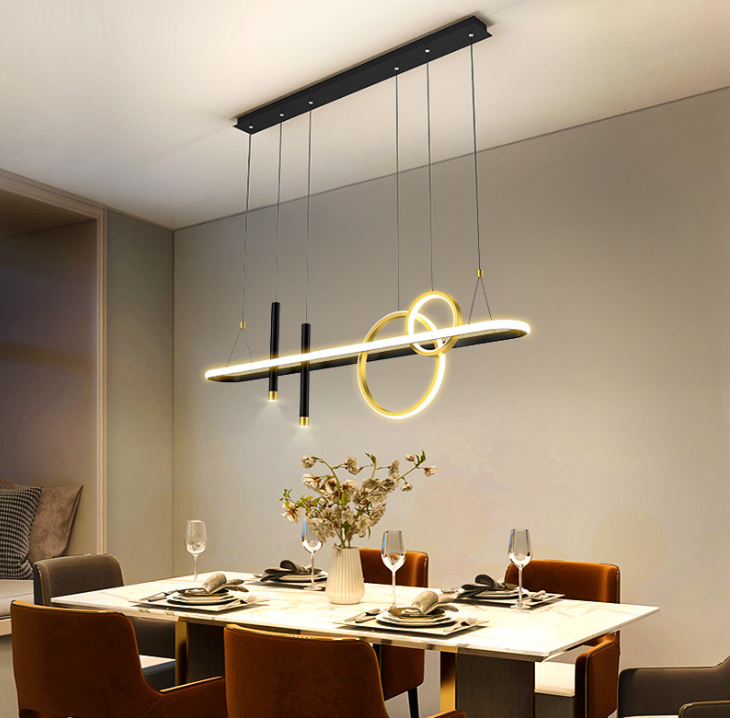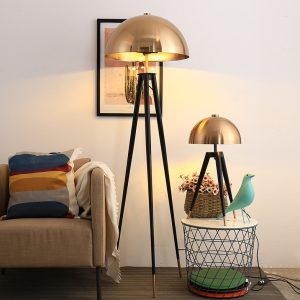Understanding Macular Degeneration
Macular degeneration is a condition that affects millions of people worldwide. It is a leading cause of blindness among individuals over the age of 60. The macula is a small part of the retina that is responsible for sharp, central vision, which is necessary for tasks such as driving, reading, and recognizing faces. When the macula deteriorates, it can lead to a loss of vision in the center of the visual field.
There are two types of macular degeneration: dry and wet. Dry macular degeneration is the more common form, characterized by the buildup of drusen, which are small, yellow deposits under the retina. Wet macular degeneration is less common but more severe, caused by the growth of abnormal blood vessels under the retina, which can leak blood and fluid, damaging the macula.Nanyhome
The Role of Lamps in Treating Macular Degeneration
While there is no cure for macular degeneration, there are treatments available to slow its progression and help individuals maintain their vision. One such treatment is the use of special lamps designed to provide bright, focused light that can improve visual contrast and clarity.
These lamps are specifically designed to provide full-spectrum lighting that simulates natural daylight, which can be beneficial for individuals with macular degeneration. The lamps use high-intensity LED bulbs that emit light at a wavelength that is optimal for the human eye, making it easier for individuals to see text and other fine details.
Some lamps also come with adjustable settings, allowing users to customize the light intensity and color temperature to their specific needs. This helps to reduce glare and minimize visual fatigue, which can be particularly beneficial for individuals with dry macular degeneration.
Choosing the Right Lamp for Macular Degeneration
When choosing a lamp for macular degeneration, there are several factors to consider. First and foremost, it is essential to look for a lamp that provides full-spectrum lighting. This will ensure that the lamp provides the optimal light wavelength for the human eye, making it easier to see details and reduce visual strain.
It is also important to look for a lamp with a high-intensity LED bulb. This will provide bright, focused light that can improve visual contrast and clarity, making it easier to read and perform other tasks.
Finally, adjustable settings are also crucial when choosing a lamp for macular degeneration. Look for a lamp with adjustable intensity and color temperature, as this will help to reduce glare and minimize visual fatigue, allowing individuals to use the lamp for longer periods without straining their eyes.
The Benefits of Lamps for Macular Degeneration
There are many benefits to using lamps for macular degeneration. These lamps can improve visual contrast and clarity, making it easier for individuals to read, write, and perform other tasks.
They can also reduce visual strain and fatigue, allowing individuals to use the lamp for longer periods without experiencing discomfort. Furthermore, the full-spectrum lighting provided by these lamps can mimic natural daylight, which has been shown to be beneficial for individuals with macular degeneration.
The portability of these lamps also makes them an ideal solution for individuals who need a light source while on the go. Many lamps are lightweight and compact, making them easy to carry in a purse or backpack.
The Future of Treatment for Macular Degeneration
While lamps are a helpful tool in treating macular degeneration, they are not a cure. Scientists and researchers continue to explore new treatments and technologies to combat this condition.
One promising area of research is the use of gene therapy to combat macular degeneration. Researchers are working to develop therapies that can target the specific genes responsible for the condition, potentially reversing its effects.
Additionally, researchers are exploring the use of stem cells to replace damaged cells in the eye, potentially restoring vision in individuals with macular degeneration.
Macular degeneration is a challenging condition that can significantly impact an individual’s quality of life. While there is no cure for this condition, there are treatments available to slow its progression and help individuals maintain their vision.
Lamps designed for macular degeneration are one such treatment, providing focused, bright lighting that can improve visual contrast and clarity. When choosing a lamp for macular degeneration, it is important to look for a lamp that provides full-spectrum light, high-intensity LED bulbs, and adjustable settings to reduce glare and visual fatigue.
As researchers continue to explore new treatments and technologies, there is hope for individuals living with macular degeneration. Lamps are just one tool in the fight against this condition, but they can make a significant difference in the daily lives of those who use them.


